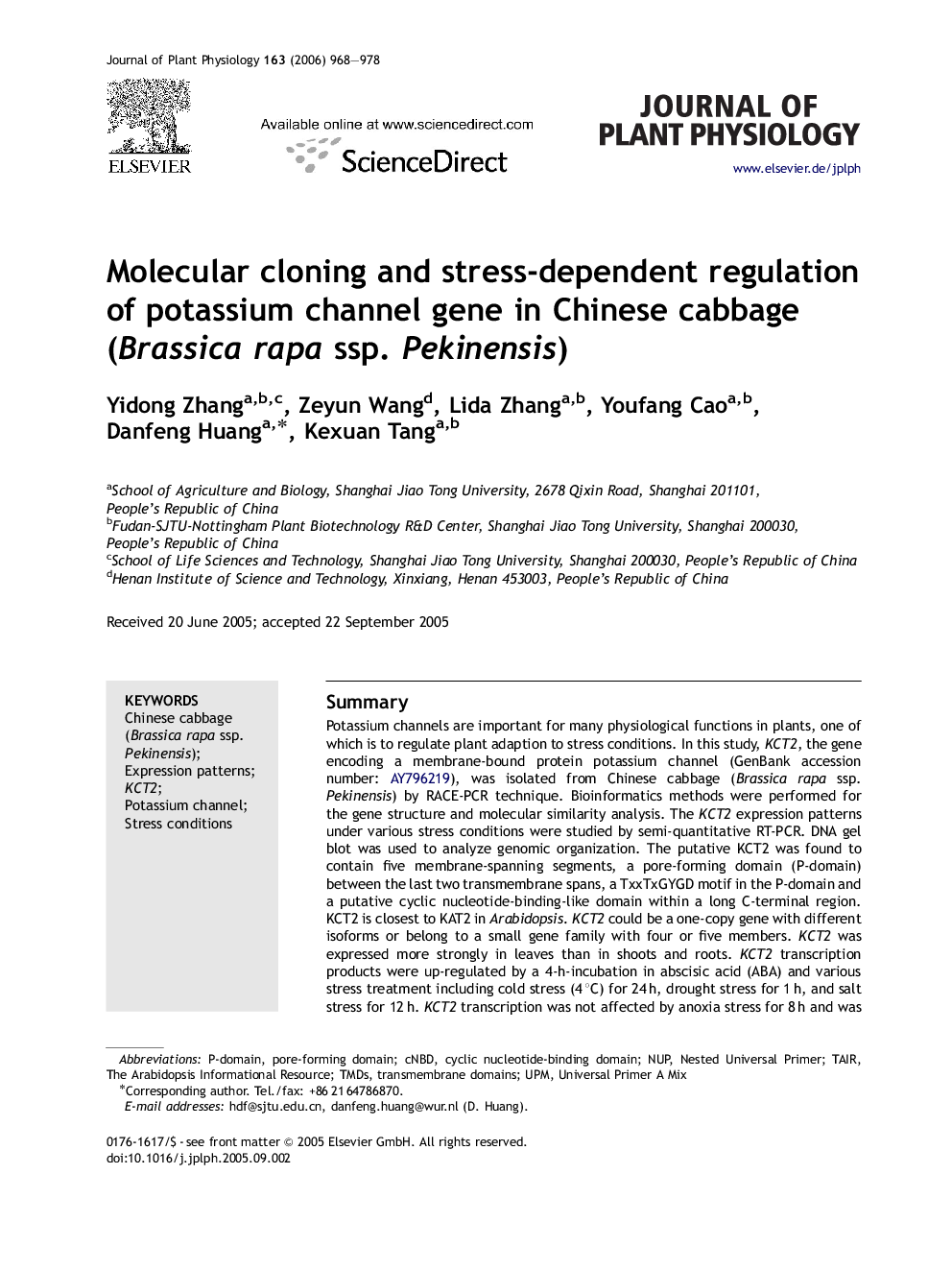| Article ID | Journal | Published Year | Pages | File Type |
|---|---|---|---|---|
| 2057431 | Journal of Plant Physiology | 2006 | 11 Pages |
SummaryPotassium channels are important for many physiological functions in plants, one of which is to regulate plant adaption to stress conditions. In this study, KCT2, the gene encoding a membrane-bound protein potassium channel (GenBank accession number: AY796219), was isolated from Chinese cabbage (Brassica rapa ssp. Pekinensis) by RACE-PCR technique. Bioinformatics methods were performed for the gene structure and molecular similarity analysis. The KCT2 expression patterns under various stress conditions were studied by semi-quantitative RT-PCR. DNA gel blot was used to analyze genomic organization. The putative KCT2 was found to contain five membrane-spanning segments, a pore-forming domain (P-domain) between the last two transmembrane spans, a TxxTxGYGD motif in the P-domain and a putative cyclic nucleotide-binding-like domain within a long C-terminal region. KCT2 is closest to KAT2 in Arabidopsis. KCT2 could be a one-copy gene with different isoforms or belong to a small gene family with four or five members. KCT2 was expressed more strongly in leaves than in shoots and roots. KCT2 transcription products were up-regulated by a 4-h-incubation in abscisic acid (ABA) and various stress treatment including cold stress (4 °C) for 24 h, drought stress for 1 h, and salt stress for 12 h. KCT2 transcription was not affected by anoxia stress for 8 h and was down-regulated with cold stress for 48 h. KCT2 was cloned for the first time from the genus Brassica. Expression analysis indicated that in the early stage of plant adaption to stress conditions KCT2 is up-regulated, which results in a stimulation of potassium transport.
